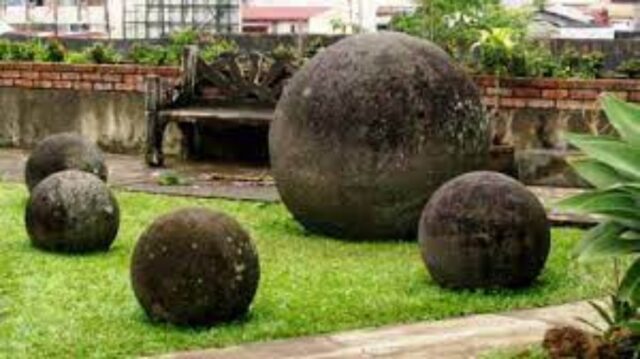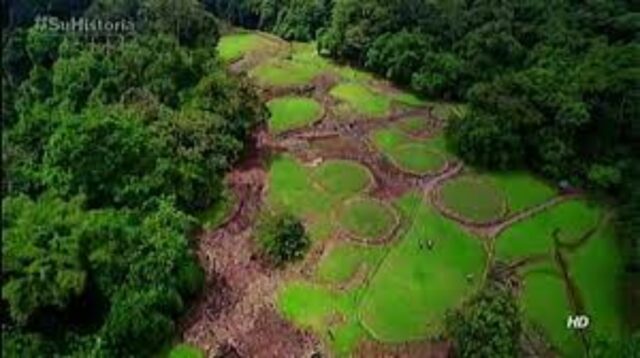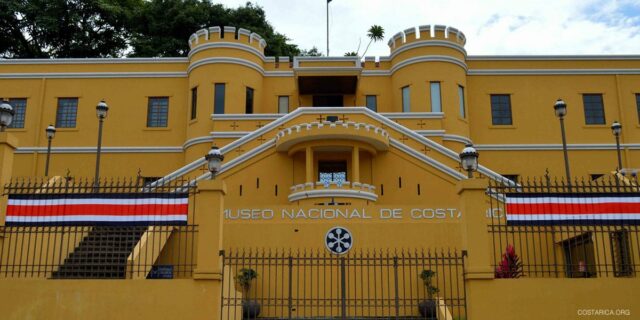Even though some will say that Costa Rica does not have cultural wonders, at the beginning there were 28 options that we found with the potential to be the favorites of Costa Ricans and those with the greatest tourist and cultural potential. Of those 28 options, 15 places of beauty and cultural value were later voted the most on Culturacr.net. Then, a second survey among visitors, through social networks and the site’s electronic newsletter, gave us the 7 most appreciated beauties by Costa Ricans.
These places, in addition to having great value and cultural quality, are also places known by people and have received the attention of the media, tourists, and the country’s academic and intellectual authorities. Each of them is a wonder in itself, a place where art and memory converge with beauty, mystery, and charm, to win the sympathy of Costa Ricans and visitors from other countries.
Let’s review those emblematic places in the country that no tourist should miss if they want to do unforgettable cultural tourism, if they want to know more about this country that was a historic bridge, full of natural charms, but without a doubt, also cultural.
1- Stone spheres. The mystery, the initial looting, and an investigation full of assumptions and few certainties surround the stone spheres of the Diquis Valley in the southern zone of Costa Rica. UNESCO declares them “Cultural Heritage of Humanity”, which would make them an attraction for tourism and more resources for their study, however, the process has been slow and without resources. Leaving aside astrological beliefs and fiction, the spheres may be a legacy of the Boruca culture and have been objects for ceremonial, astronomical, or even indigenous power relations purposes. There are at least three sites where they can be observed in situ: Finca 6, Batambal, Grijalba 2, and El Silencio. The spheres are also part of a southern tourist complex that includes beautiful natural spaces such as the Térraba and Sierpe wetlands, between 3 and 4 indigenous cultures living in the area, and the beautiful beaches of the South Pacific, where you can see whales and dolphins, as well as like the great natural reserve that is Corcovado.

2- National Theater. This fine and old cultural building of Costa Rica is associated with the time of the heyday of coffee in the country. Its construction took place at the end of the 19th century and today with more than 100 years of existence, it is kept in good condition, the roof was recently repaired, however, internal remodeling is still needed. Currently, the theater offers shows of all kinds, including concerts, festivals, and usually international presentations; it also has the Music at sunset and Theater at noon programs that present short shows in the foyer and at affordable prices. The theater is located in the center of San José, next to the Plaza de la Cultura and the Gran Hotel Costa Rica, both also historical spaces, between the central and second avenues.
3- Guayabo National Monument. For a long time forgotten, this ceremonial complex located in Turrialba reveals an amazing indigenous development, linked to the Cabecar culture. In Guayabo, little is known, but what is known is fascinating: its aqueduct still in operation, the stone road that goes from the town of Turrialba to the Monument, where pilgrims are supposed to have walked to the ceremonial center, tombs, as well as petroglyphs and monoliths. Likewise, figures in gold were found in the first excavations and to date, vertical archaeological excavations have begun to learn a little more about the place. Mounds of various sizes with different purposes and an indigenous cemetery can be seen. The place is also an archaeological enigma and various historical interpretations converge on it, however, it is an enigma that attracts more and more observers. It is associated with energy and spirituality, due to its alignment with the Turrialba volcano.

4- La Casona of the Santa Rosa National Park. This place, once known as Hacienda Santa Rosa, was the field of the first battle of the Costa Rican army against the American invaders under the command of filibuster William Walker on March 20th, 1856. The mansion was built in 1750 and is currently part of a national park that also brings together territories for the conservation of wildlife. Its antiquity, as well as the fact that the first triumph of an inexperienced Costa Rican army against filibusters took place there, still has that site in the affection of Costa Ricans. The mansion was already declared a national monument in 1966 and a national park in 1971. Then in 1999, it was declared a World Heritage Site together with the Guanacaste Conservation Area. Do you want to meet her?
5- Colonial Church of Orosí. Built in 1767 by the Spanish in their process of domination, conquest, and colonization, it is one of the oldest churches in the country, it has been recently restored to preserve it. It has a small museum with clothing and religious objects of the time, such as cassocks and altars. Also, to one side is an old cemetery with crosses, tombstones, and other ancient forms. It is located in the Orosí Valley, an ancient indigenous community that was displaced by the Spanish in search of gold. The surroundings of Orosí have state reserves such as Tapantí and private ones such as Montesky (visit this place) that preserve the biodiversity and beauty of the landscape, from viewpoints and hot springs, waterfalls, and the Reventazón River, at the beginning of the Cordillera de Talamanca.
6- Black Star Line. Located in the city of Limón, this historical building of Afro-descendant culture was built in 1922 in wood. In 2014 it will be restored for its preservation as a space of great value for the people of Limon and their culture. In this place, declared historical architectural heritage in 2000, a Caribbean food restaurant is located on the first floor, and on the upper floor is the Liberty Hall (Salón Libertad). In the place, most of the cultural activities of the community are carried out, such as those on Black Day.
7- National Museum of Costa Rica. This large building, restored and converted into a valuable historical museum, is part of a public complex that includes the Plaza de la Democracia, in downtown San José. Known before the 1948 War as the Bellavista Barracks, it is a symbol of the abolition of the army in Costa Rica and, for this reason, it became a museum. Bullet holes can still be seen in the building as a result of the “Bellavistazo”, a rebel attempt to seize the barracks and remove the winning side of the 1948 Civil War from power. In it are some stone spheres, disused military instruments, historical relics, and many other objects that are part of the historical legacy of the country. Its scenic beauty is evident.

Even though they did not enter the list of the 7 cultural beauties of the country, the 8th and 9th places in the vote are worth highlighting: the ruins of Ujarrás and Cartago, old colonial churches that were destroyed by an indigenous rebellion, the first one, and by an earthquake and abandonment, the second one.
These places are part of the cultural tourism that the country offers and in each one of them, there are vestiges of a very particular past, of the past of an essentially peaceful country, which had its wars, and of a past full of art, culture and visual richness, which still preserves. The problems are not foreign either; the museums are not visited by Costa Ricans, as well as the wonderful places where the stone spheres and the national monuments of indigenous, colonial, or republican origin are.

For those who have experienced shifts in consciousness and know that more peace, joy, and love awaits in a better living environment. A bold shared vision. A living community and hub for innovation. A sustainable ecosystem for living and working. A model for the new future.

